A Discussion Hosted by Aisha Seriki and Joy Labinjo with Mobolaji Ogunrosoye and Amaize Ojeikere
On April 30th, 2025, G.A.S. Lagos hosted Unearthing the Archive, an evening of discussion exploring the role of archives in contemporary artistic practice. Facilitated by Aisha Seriki and Joy Labinjo, the event brought together artist and G.A.S. alumna Mobolaji Ogunrosoye, and Amaize Ojeikere, a photographer, writer, and son of the legendary J. D. 'Okhai Ojeikere. Together, the panellists reflected on how archival materials shape their work as tools for uncovering hidden narratives, bridging personal and collective histories, and reimagining the past through a contemporary lens.
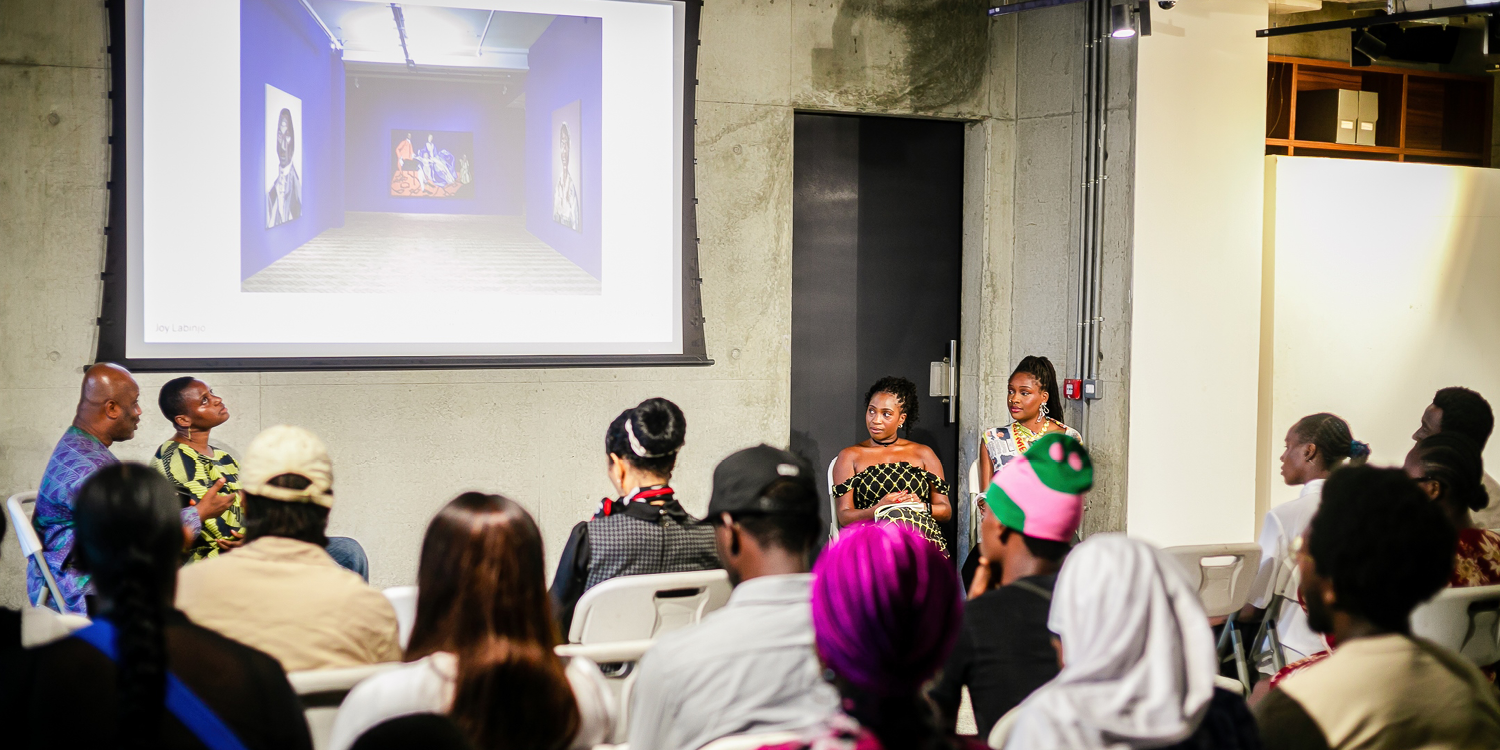 Guests gathered at G.A.S. Lagos for Unearthing the Archive, presented on 30th April, 2025.
Guests gathered at G.A.S. Lagos for Unearthing the Archive, presented on 30th April, 2025.
The evening opened with a welcome address from Aisha Seriki, who outlined the curatorial intentions behind the event. She spoke about her artistic practice, which centers on spiritual-material entanglements, emphasising ancestral technologies, Black temporalities, and non-linear memory. To ground the conversation, she introduced the Lagos Studio Archives, an ongoing collaborative project by G.A.S. Alumni Karl Ohiri and Rikka Kassinen. The archive preserves thousands of film negatives documenting everyday life in Lagos from the 1970s to the early 2000s. Developed in response to the widespread disposal of analogue photographs during the digital shift, the project seeks to reclaim and safeguard visual histories that might otherwise be forgotten.
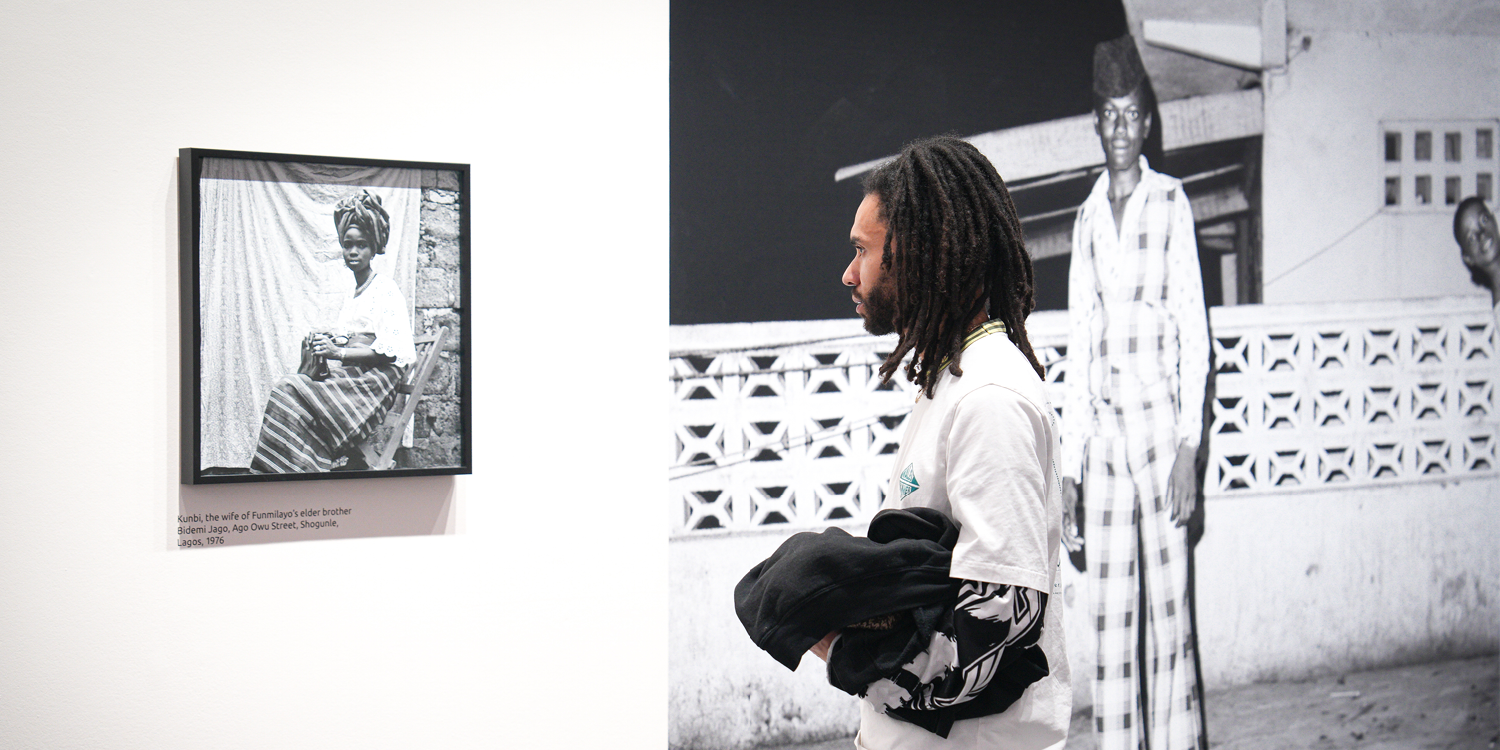 Abi Morroco Photos: Spirit of Lagos exhibition at Autograph, London. The show was co-curated by Autograph Senior Curator, Bindi Vora and G.A.S. alumni, Lagos Studio Archives; a curatorial and cultural preservation collective by Karl Ohiri and Riikka Kassinen.
Abi Morroco Photos: Spirit of Lagos exhibition at Autograph, London. The show was co-curated by Autograph Senior Curator, Bindi Vora and G.A.S. alumni, Lagos Studio Archives; a curatorial and cultural preservation collective by Karl Ohiri and Riikka Kassinen.
Joy continued by exploring Casting History, a three-dimensional series by Nigerian artist Kelani Abass. Using stamps and type cases inherited from his father’s printing press, Kelani layers archival images into textured compositions that evoke the passage of time. His work, Joy explained, repurposes obsolete tools to reflect on memory, loss, and the persistence of the past. Kelani incorporates vintage portrait photographs, both original prints and painted reproductions, drawn from his father’s publishing archives. By integrating metal typeface and other elements from the printing world, he brings to light fragile, personal testimonies from Nigeria’s independence era, offering a tangible link to the past.
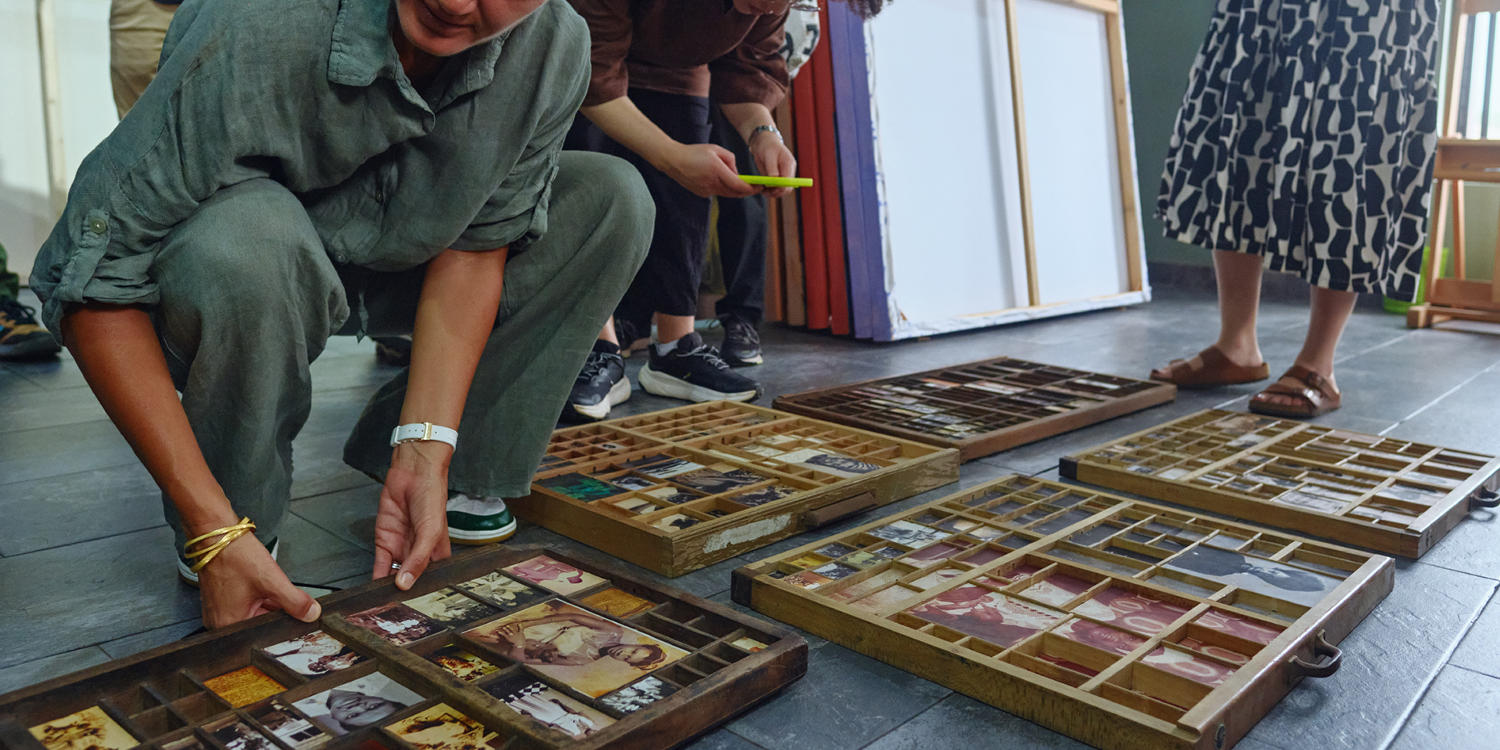 Kelani Abass' Casting History series.
Kelani Abass' Casting History series.
The conversation then turned to the guest panellists. Mobolaji Ogunrosoye shared how her work with personal and familial archives helps her explore themes of memory, vulnerability, and Black womanhood. Amaize Ojeikere reflected on his experience caring for and working with his father’s influential archive, and how that legacy continues to inform his own photographic practice. Both artists discussed the archive as an active, generative space one that preserves history while opening new possibilities for interpretation. During the panel, Joy also offered deeper insight into her own process, describing how family and self photographs inform her approach to painting and storytelling, reclaiming visibility for Black subjects often absent from dominant narratives.
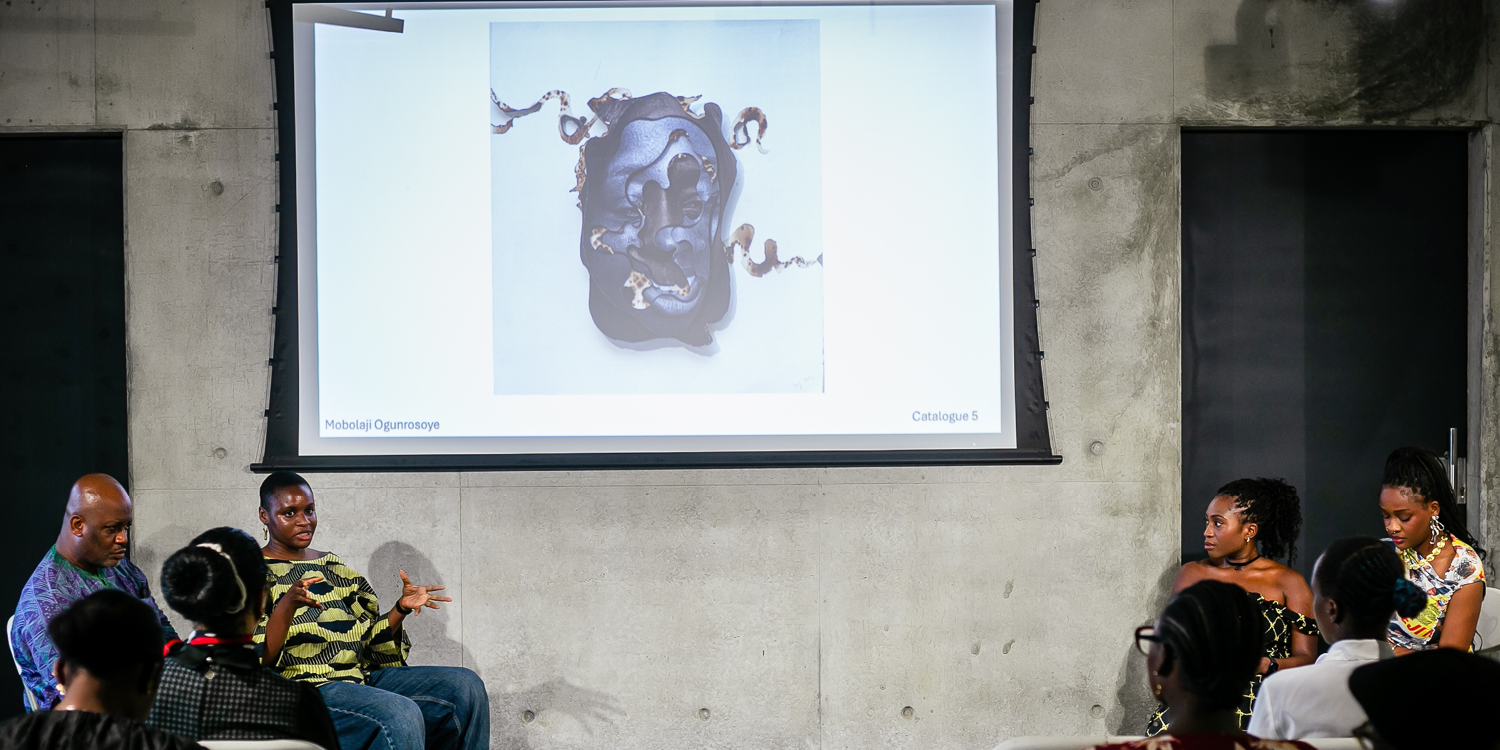 Guest panellist Mobolaji Ogunrosoye presenting work at Unearthing the Archive.
Guest panellist Mobolaji Ogunrosoye presenting work at Unearthing the Archive.
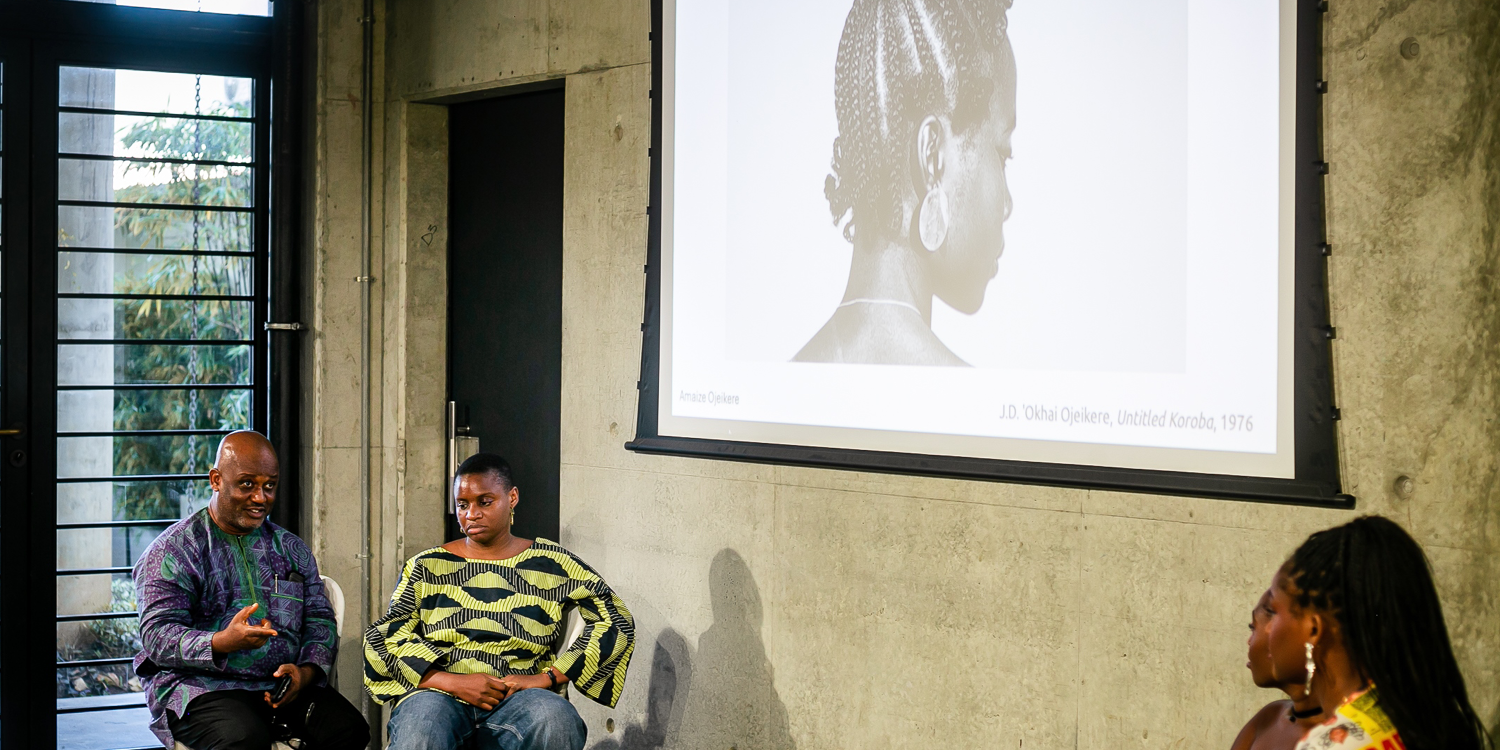 Guest Panellist Amaize Ojeikere, presenting work at Unearthing the Archive.
Guest Panellist Amaize Ojeikere, presenting work at Unearthing the Archive.
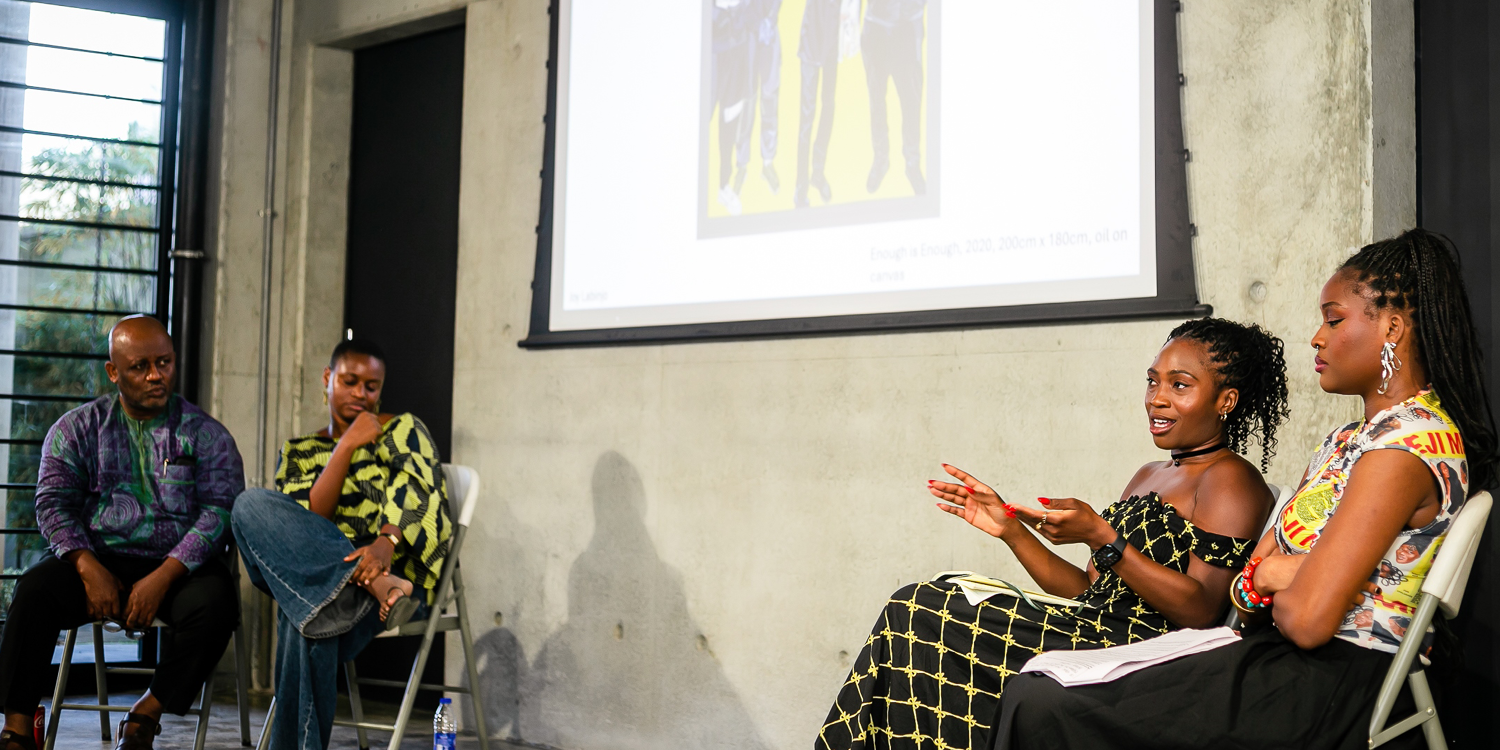 Then-resident Joy Labinjo presenting work at Unearthing the Archive.
Then-resident Joy Labinjo presenting work at Unearthing the Archive.
The event concluded with a Q&A session, where audience members raised thoughtful questions around access, ethics, preservation, and the evolving role of archives in contemporary African art, including how artists care for, challenge, and reinterpret archival materials.
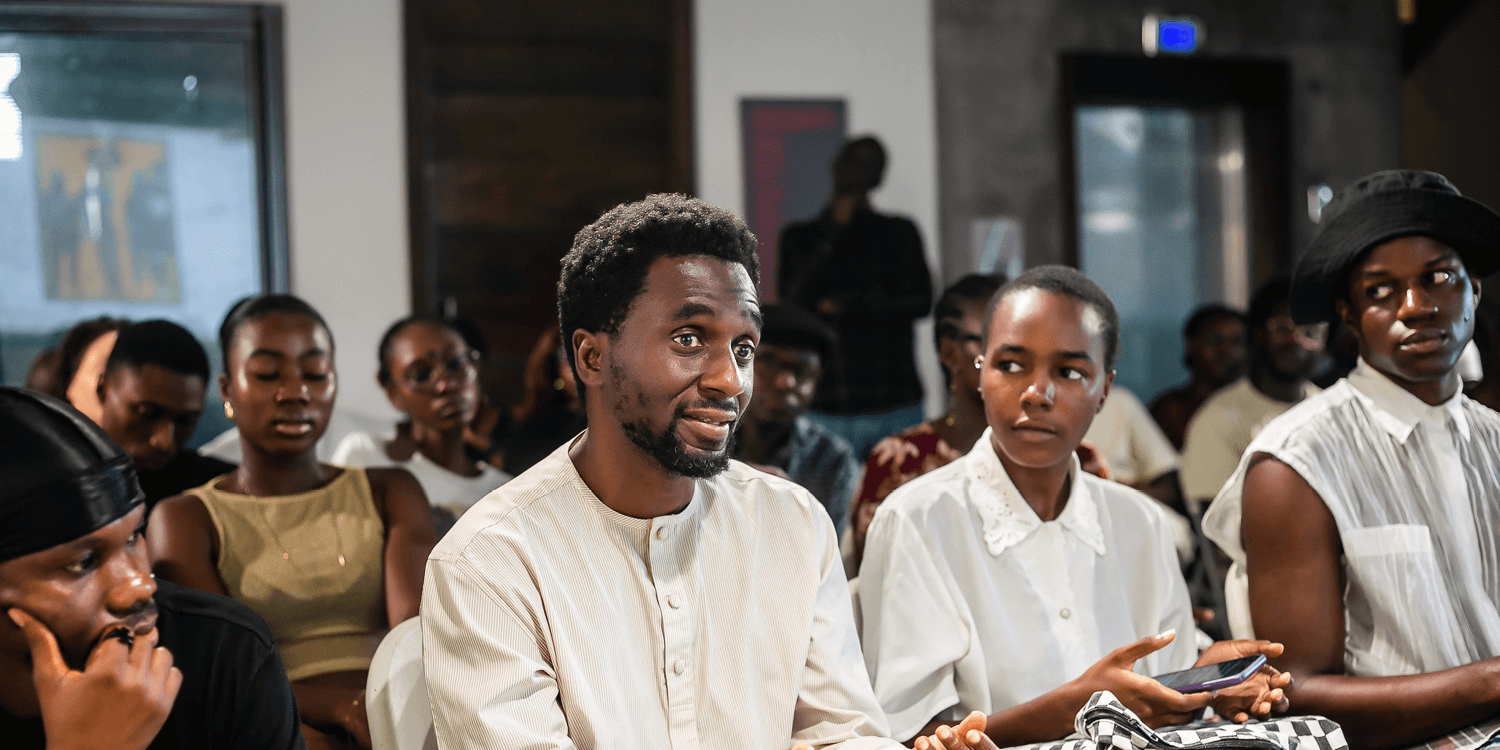
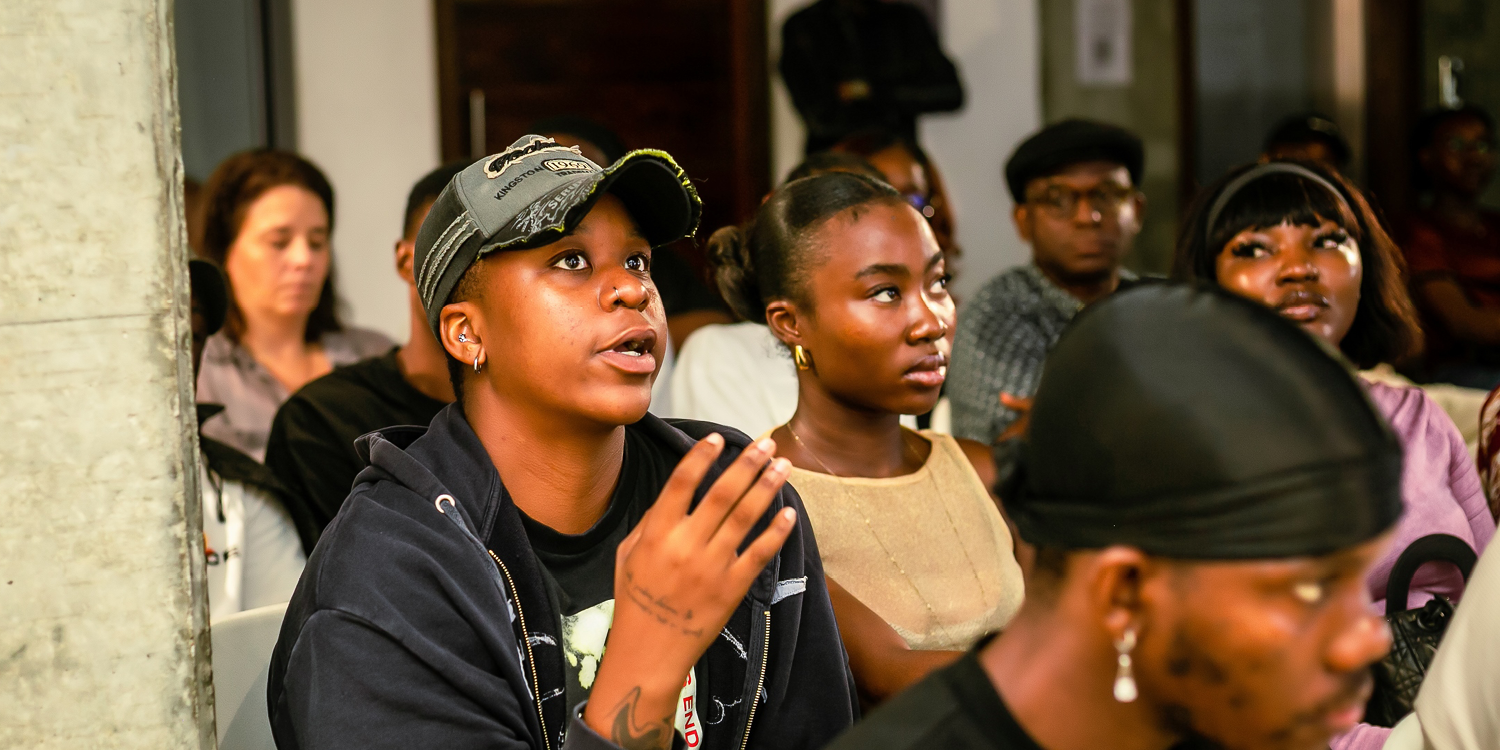
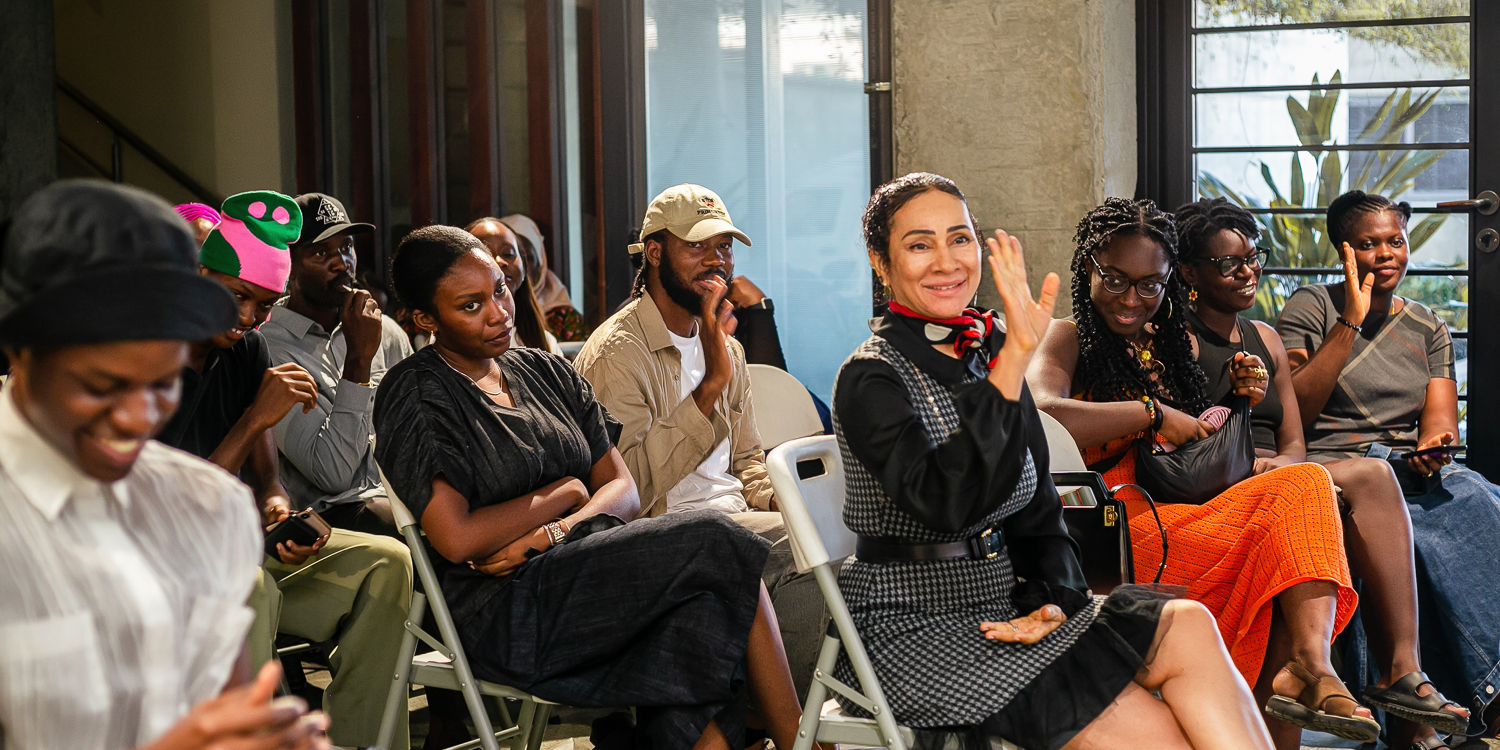
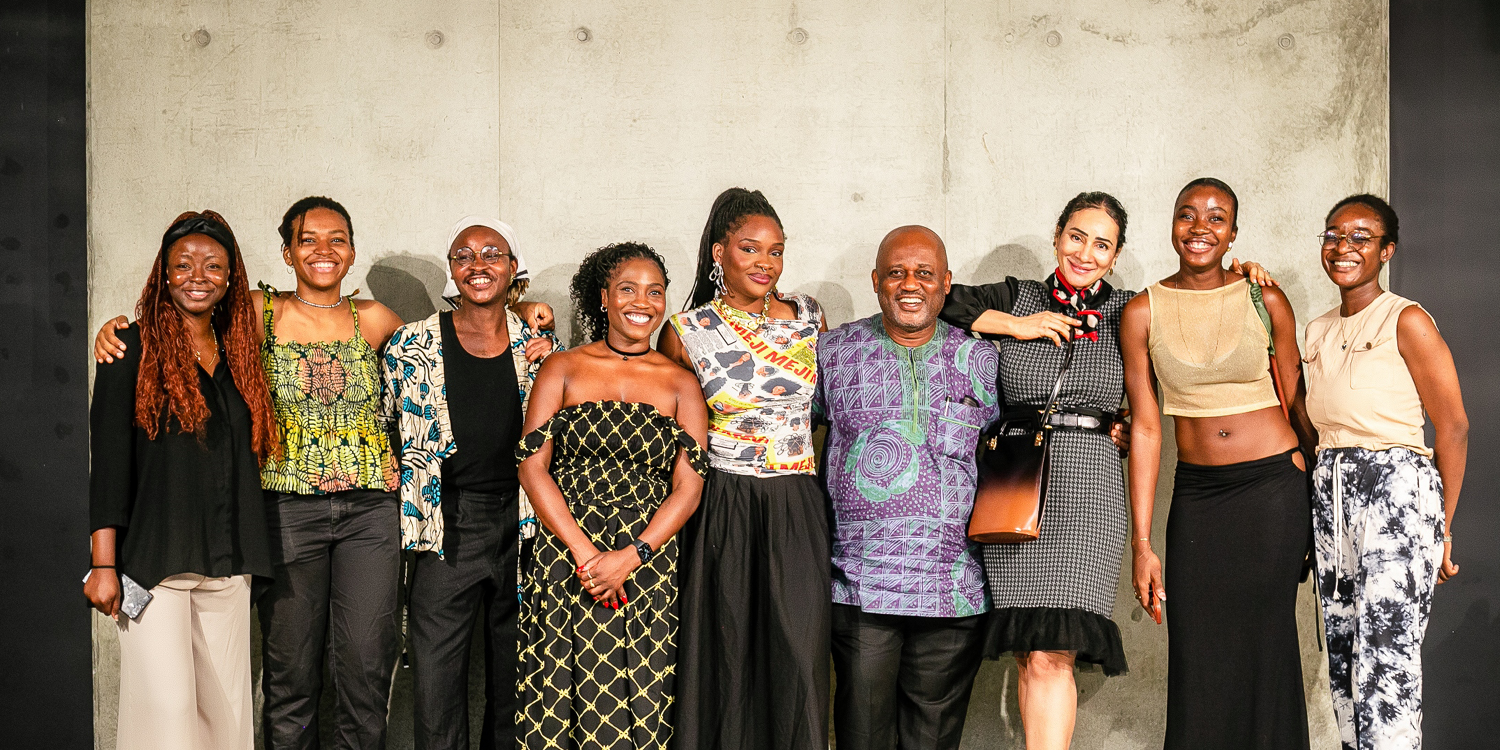 Group photograph of then-residents, guest panellists, guests and G.A.S. staff at Unearthing the Archive, presented on 30th April, 2025.
Group photograph of then-residents, guest panellists, guests and G.A.S. staff at Unearthing the Archive, presented on 30th April, 2025.
About the Facilitators
Aisha Seriki
Aisha Olamide Seriki is a Nigerian multi-disciplinary artist based in London, specialising in fine art photography and sculpture. Seriki works from a canon of personal histories which splice contemporary realities. Her practice is holistic and embodied, subverting formal photographic traditions. Cosmological systems such as the Yoruba Spiritual Tradition have informed the multisensory approach Seriki has to documentation, communication and creation. Through optics and trickery, she challenges the rigid imagination of self, creating space in the archive for a wider definition.
In 2023, she was awarded the Frank Bowling Scholarship and completed the Photography MA programme at the Royal College of Art, and in 2024 she completed her MFA in Fine Arts and Humanities. Aisha’s project Orí Inú received the RCA’s New Photography Prize, the SW Darkroom Award and the inaugural JM Finn Graduate Artist Award (2023). In May 2024, Aisha won the V&A Parasol Foundation Prize for Women in Photography.
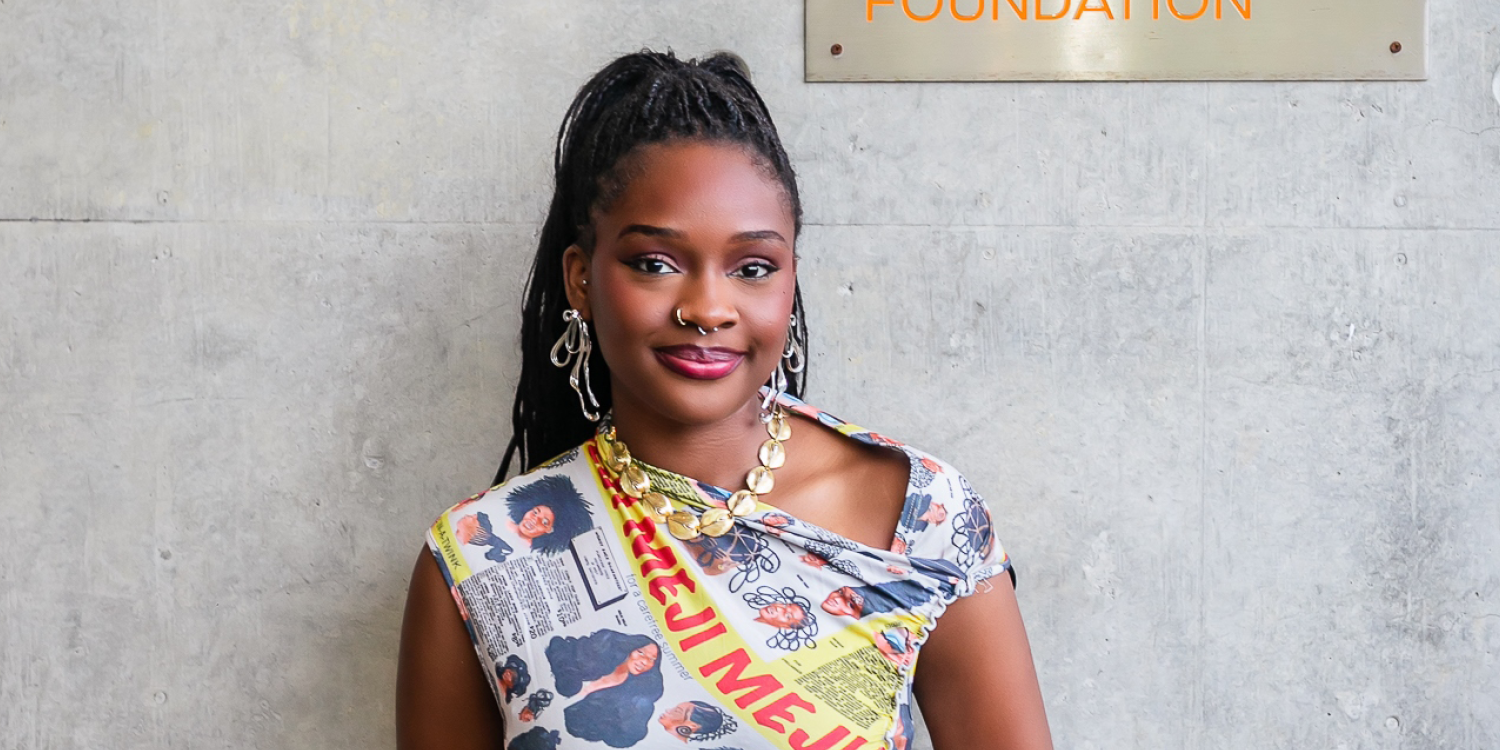
Joy Labinjo
Joy Labinjo’s large-scale figurative paintings often depict intimate scenes of historical and contemporary life, both real and imagined and often based on figures appearing in personal and archival imagery that include family photographs, found images and historical material. She has explored themes including but not limited to identity, political voice, power, Blackness, race, history, community and family and their role in contemporary experience.
Her work presents fresh and arresting compositions of colour, pattern, and motifs—key signatures of Labinjo’s work. Fundamentally, at the heart of Labinjo’s practice is a bold interest in storytelling and, ultimately, people’s lives. Labinjo’s aesthetic comprises an eclectic visual vocabulary and mixed painterly techniques that echo her experience of multiple identities—growing up Black, British, and Nigerian in the 1990s and early 00s.
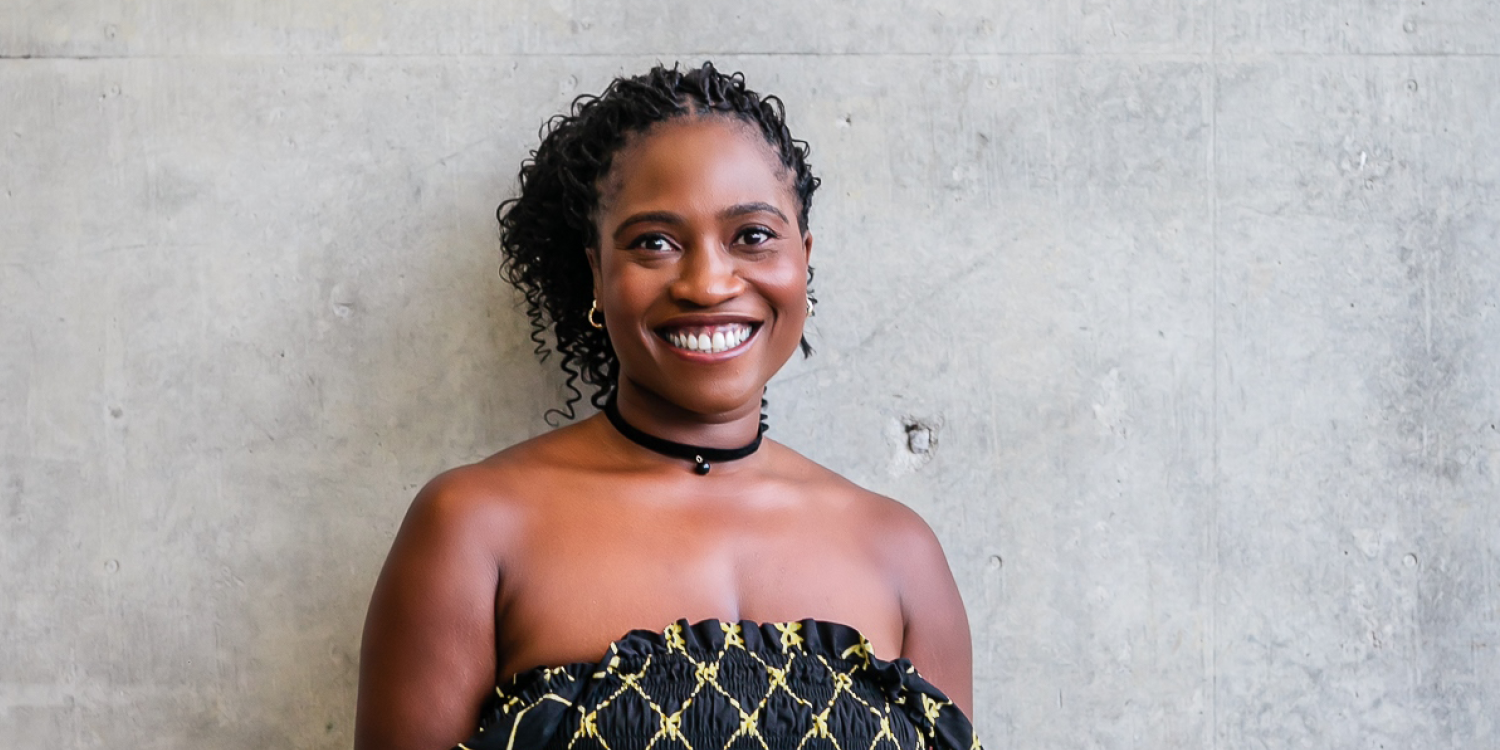
About the Speakers
Amaize Ojeikere
Amaize Ojeikere is a graduate of Business Administration and Management 1991 of Auchi Polytechnic Auchi, Edo State, Nigeria. After working for about 3 years, Amaize began his photographic career which has spanned over two decades. This began under the tutelage of his father, J. D ‘Okhai Ojeikere (one of Nigeria’s foremost photographer) of blessed memory who gave him his first camera (A Canon D70, 35mm SLR camera) as his graduation present. In Pursuant of his career, Amaize has sat in classes at different photo workshops organized by MR SUNMI SMART—COLE, (with whom he processed his first black +white film) The Goethe Institute, The French Cultural Centre and The British Council (Lagos, Nigeria), Mon. Giles Perrin and Philippe Salaun in Paris, France in 1997, 2000, 2001 and 2003 respectively.
Amaize continues to play a major role in the management of FOTO OJEIKERE, a photography company set up by his father, Mr J.D.’Okhai Ojeikere in 1975. The company is devoted to rendering high quality photo service to its customers. He is also saddled with the responsibility of overseeing the huge photographic archives that was left behind by his father. Amaize has participated in several group exhibition is a member of the International Freelance Photographers Organization, the Photographer’s association of Nigeria, the Depth of Field (DOF) and The Invisible Borders: 2009&2010. He lives and works in Lagos - Nigeria and he is happily married to Adeite.
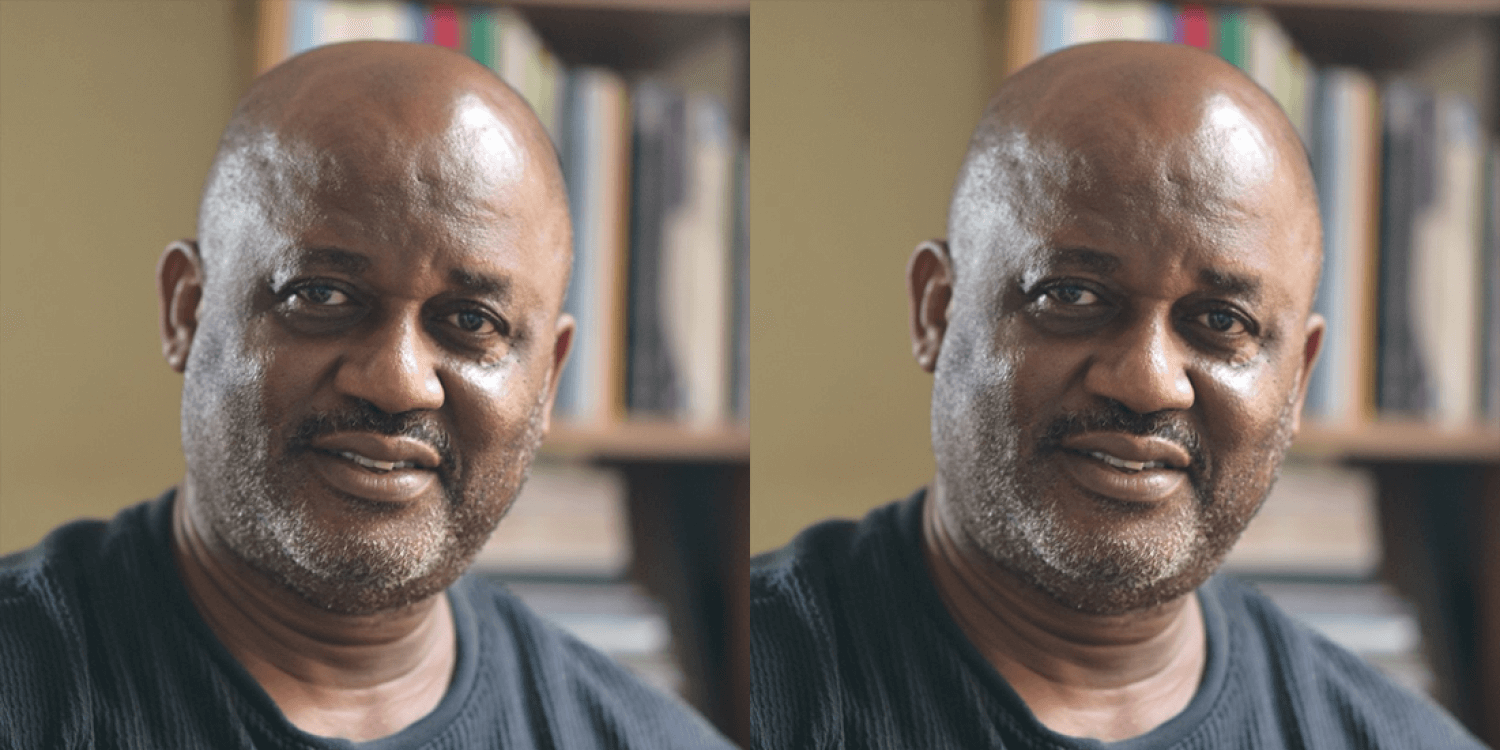
Mobolaji Ogunrosoye
Mobolaji Ogunrosoye is a G.A.S. alumna and visual artist based in Lagos, Nigeria, working in the intersection of photography and collage. She utilizes these mediums to explore distortion and the nuances of contrasting emotions found within images of Nigerian and black women. In Portraits, Mobolaji creates multi-layer collages, incorporating a process of burning and cutting to create depth in revealing underlying layers of images. In 2022 -2023, she developed the 'Portraits' series, where she delved into incorporating coffee granules as an important element within each portrait. Mobolaji expanded on these explorations during a 5-week residency at The Noldor Residency in Accra, Ghana, in 2022. She is currently exploring the use of transparent materials as tools for collage.
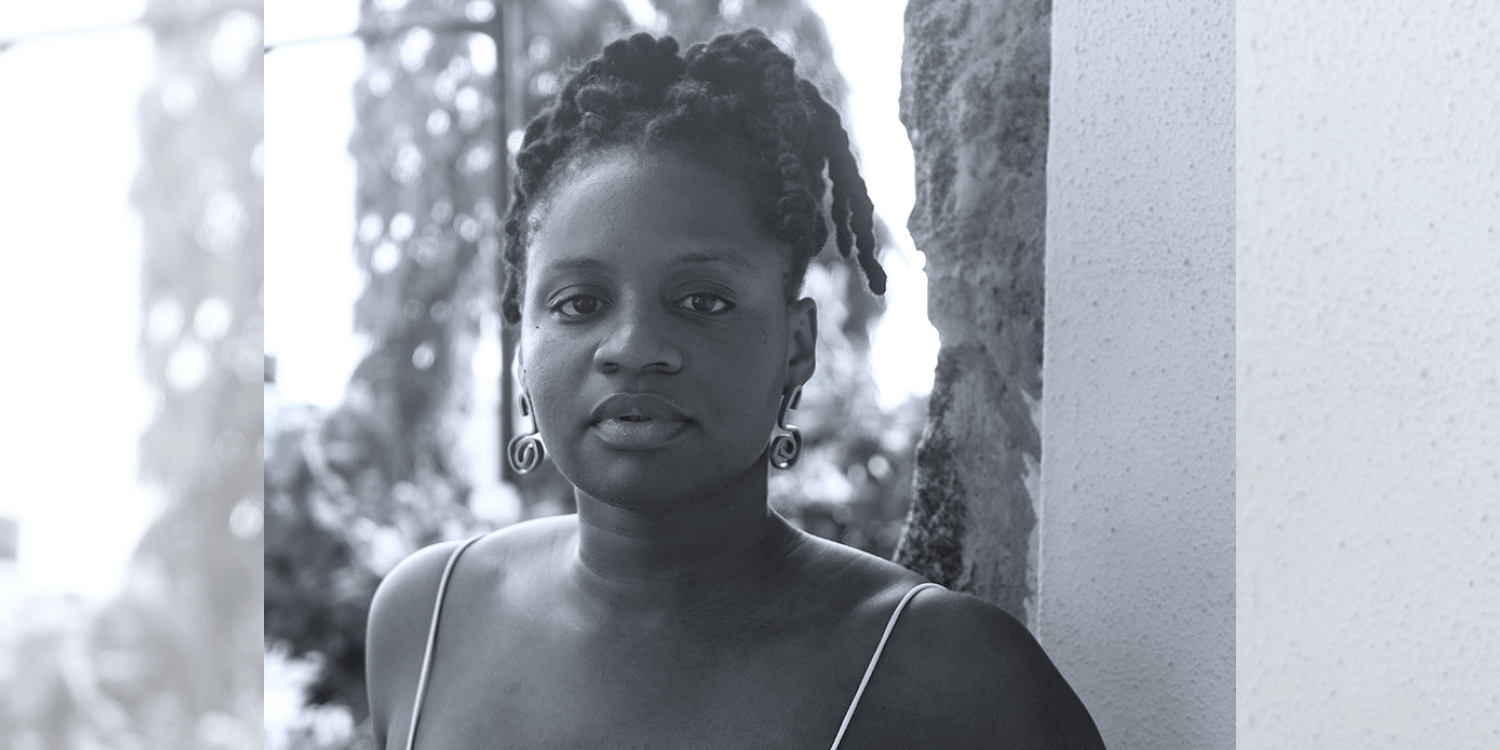
Header image credit: Two Women Dancing, Lagos, 1976. Courtesy of Abi Morocco Photos and the Lagos Studio Archives.
Aisha's residency is generously supported by the Royal College of Art Association of Black Students, Alumni & Friends (RCA BLK) while Joy's residency is generously supported by Tiwani Contemporary.
